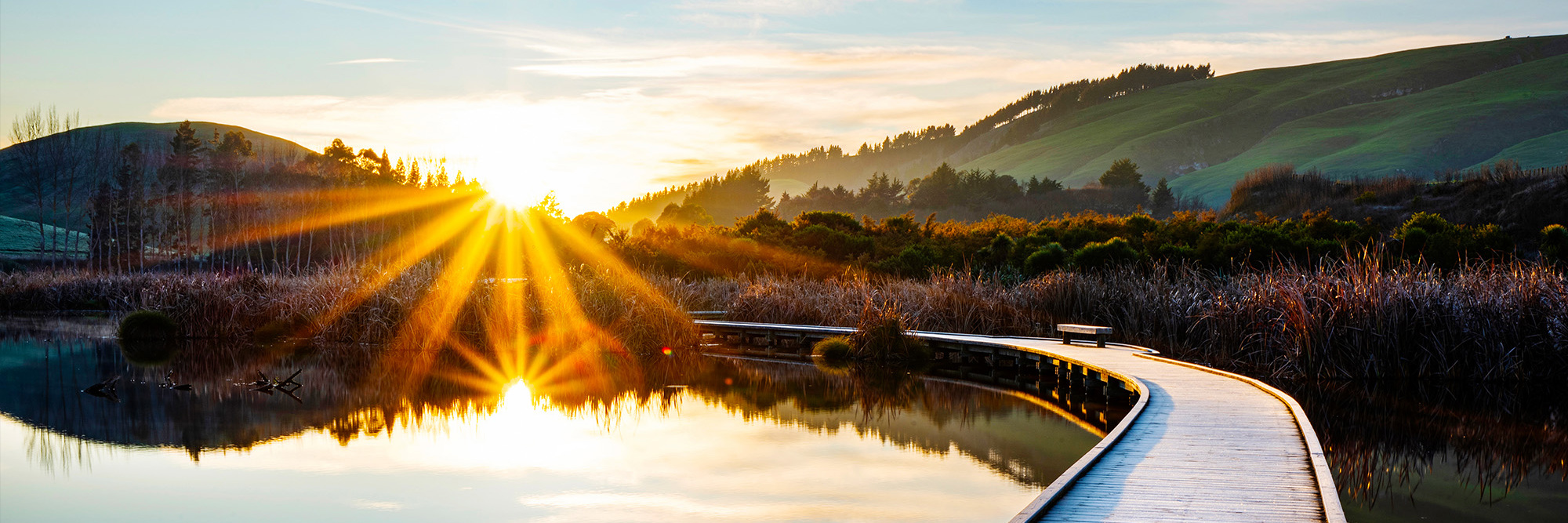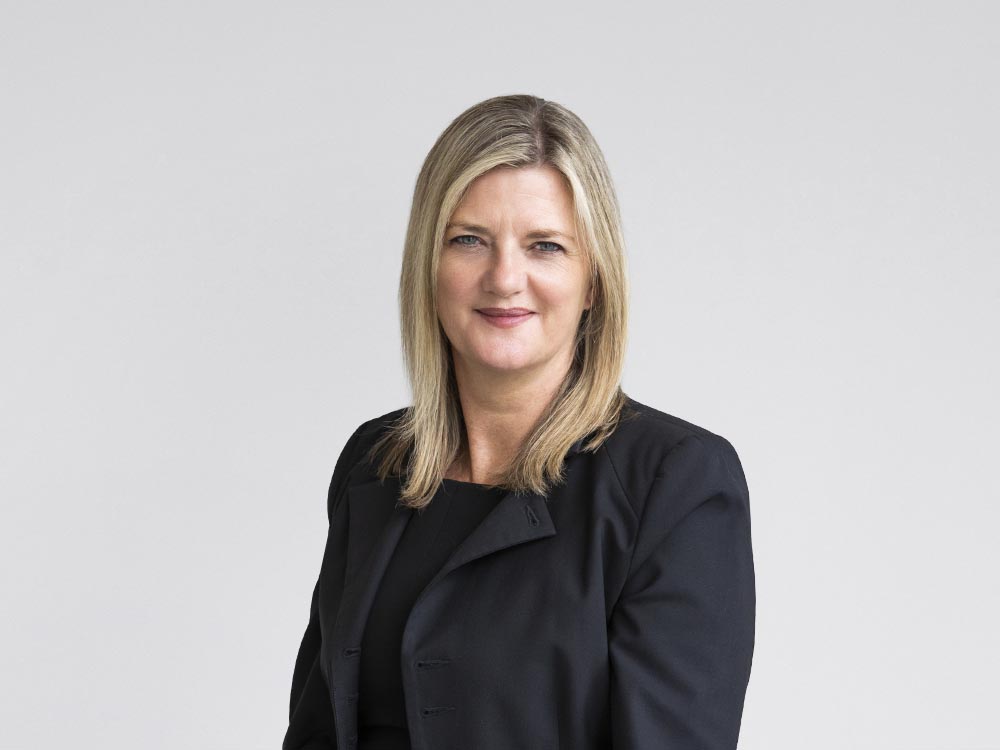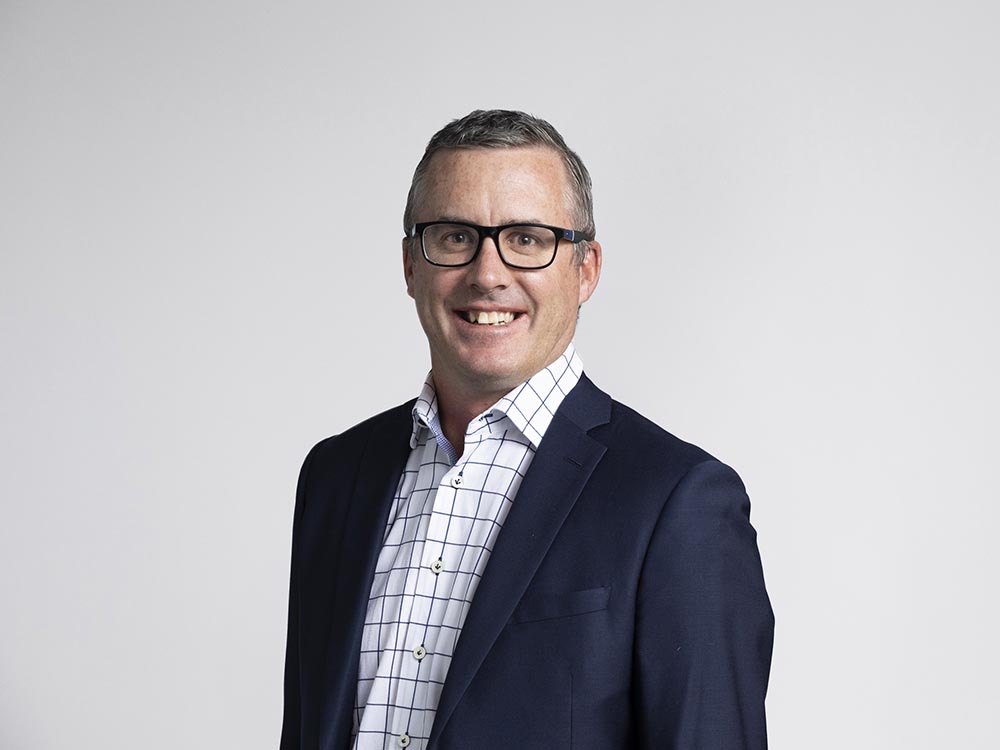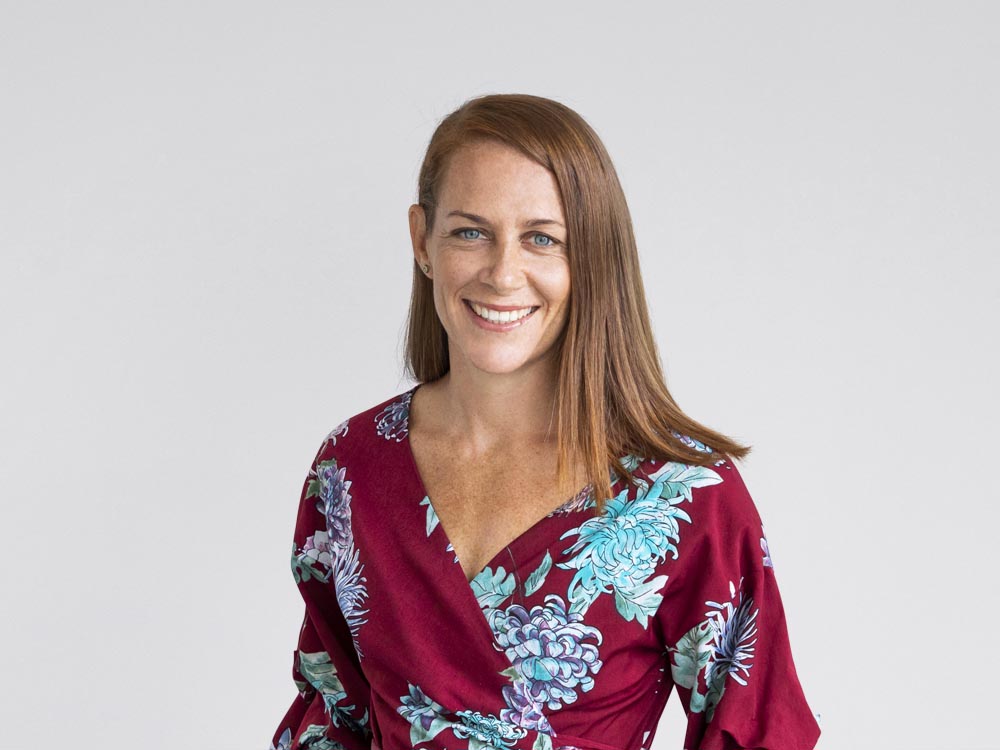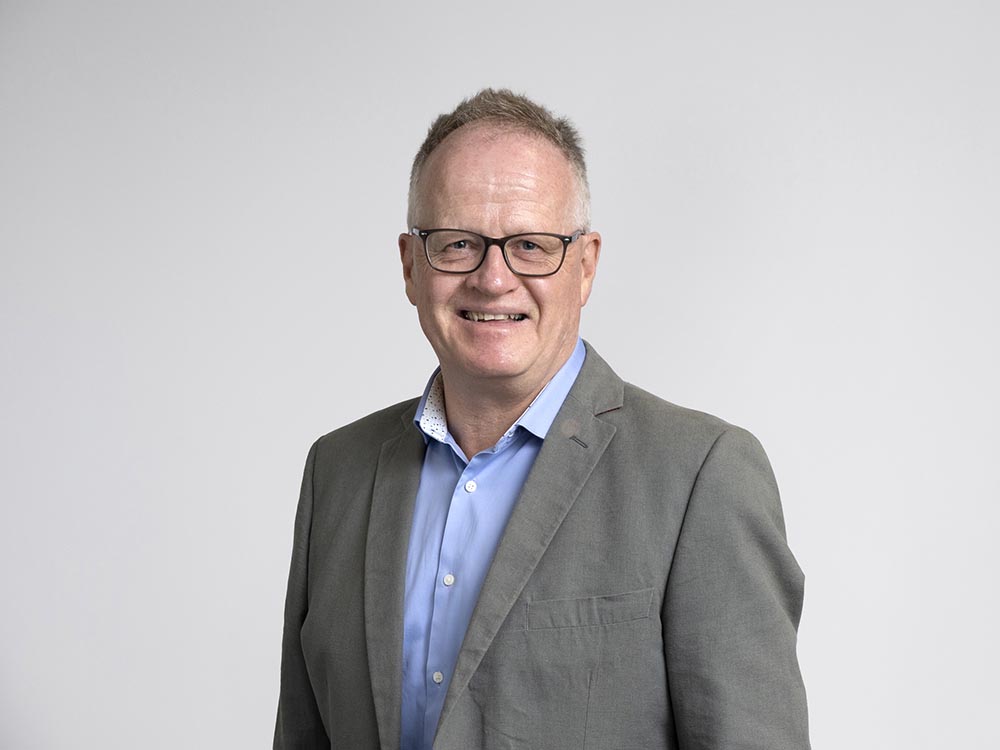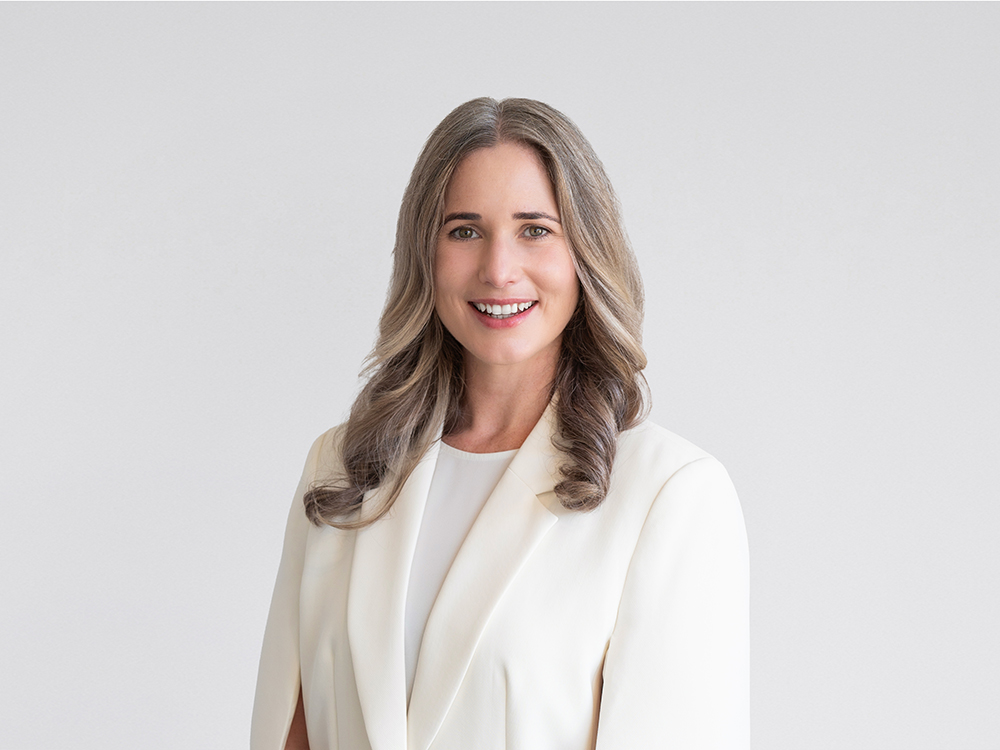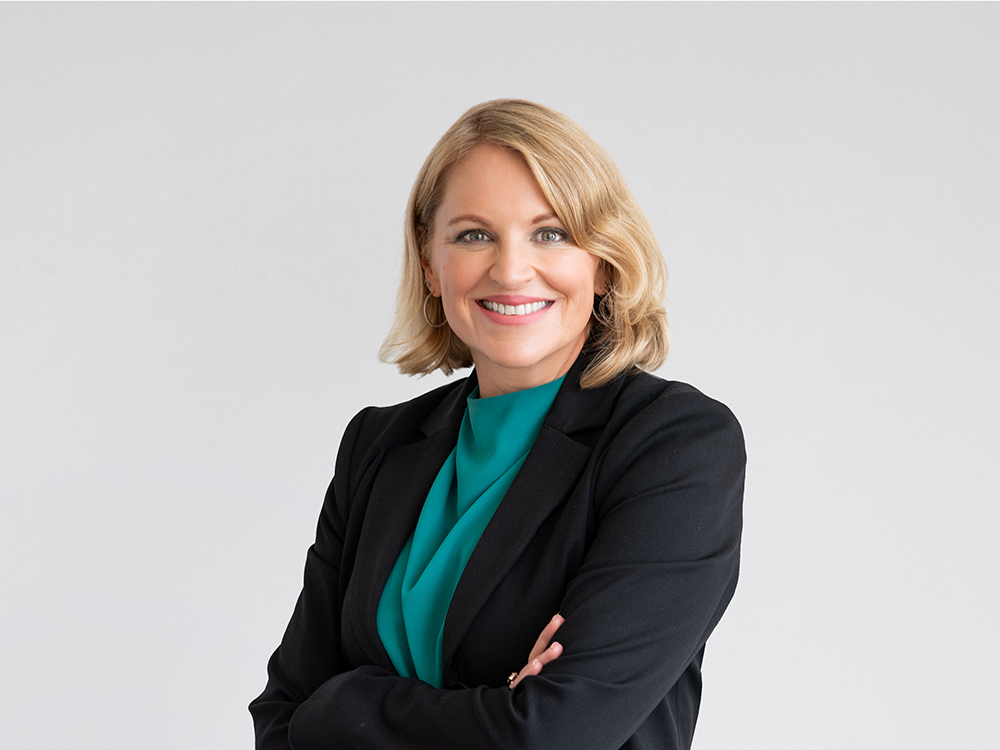Jeff Schlichting is excited about what the future holds both for Aotearoa New Zealand and the energy industry. The Managing Director and Co-Founder of Helios Energy (Helios) sees the electrification of our economy as a significant national opportunity. Just how we get to net zero by 2050 is not yet clear, but large-scale solar, such as that being developed by Helios, is a key part of the mix.
For Helios, the how goes deeper. It aims to decarbonise in a way that has a positive impact for all stakeholders and is true to its values, whether those be national, corporate, or individual. MinterEllisonRuddWatts Partner and Energy Sector Lead, Scott Thompson, sat down with Schlichting to zero in on Helios’ solar ambitions through the lens of some of its core values.
Helios is an Auckland-based utility-scale solar and BESS [1] developer, co-founded by Schlichting and fellow American, Tim Derrick. With a planned portfolio of 1 GW of large-scale solar by 2030 (Helios has seven priority projects located around Aotearoa New Zealand), it is a major player in the developing utility-scale solar industry here.
Schlichting says Helios would not have existed but for the Edmund Hillary Fellowship – a community of more than 500 global and local innovators, entrepreneurs, and investors committed to Aotearoa New Zealand as a “basecamp” for global impact. Its purpose is to partner with Aotearoa New Zealand to find and build solutions to our toughest challenges. As Edmund Hillary Fellows, Schlichting and Derrick were introduced to a broad network of Kiwi business leaders, mentored on the principles of Te Ao Māori (Māori world view) and educated about the history, principles and application of Te Tiriti o Waitangi (the Treaty of Waitangi). They are now using this gained understanding alongside their international experience, knowledge, and passion for Aotearoa New Zealand and renewable energy in the fight against climate change.
Tiaki: Safeguarding our future with utility-scale solar
One of Helios’ core values is tiaki: to safeguard. Helios aims to enable a zero-carbon future for Aotearoa New Zealand by utilising solar. Why solar and why now?
Solar farms convert solar energy into electrical energy (photons into electrons) and inject that electricity directly into the electricity transmission network for sale in the wholesale market and use by consumers. Sometimes referred to as “virtual rain”, solar farms generate the most electricity during long, summer, sunshine hours. While there is much talk about the intermittency of solar, this can be managed to some degree using onsite batteries. Schlichting says solar also affords the opportunity to use the country’s hydro resource as the battery that it really is. Summer is the ideal time to save water in our hydro lakes for generating electricity when the wind isn’t blowing or the sun isn’t shining.
As of October 2023, approximately half of the new generation interest in Transpower’s pipeline was for grid scale solar with 15.2 GW capacity – far beyond original expectations of 6 GW of solar by 2050 [2]. Solar also made up the largest share of advanced projects with about 77% of projects at investigation stage or later.
Schlichting attributes the recent surge of large-scale solar developments to a combination of factors, starting with rapidly improving economics. Solar is now one of the most cost-effective sources of utility-scale renewable energy in the world. NZ Inc. stands to benefit from the past two decades of global investment, research, and utility-scale solar experience in other countries to deliver the highest quality solar developments for Aotearoa New Zealand at the lowest cost, without the need for government subsidy.
Whakarawe: Providing low cost, clean energy
Another reason Schlichting gives for utility-scale solar outstripping original projections is because it is rapidly democratising the energy development market. This reflects another Helios value - whakarawe: to provide. Helios aims to democratise energy markets by providing greater access to low cost, clean energy.
Solar farms are passive, produce no emissions and are not subject to any costs of carbon that are incurred by thermal generators. At scale, solar farm construction is, relative to some other renewable options, inexpensive, and this is another reason why larger scale developments make sense. Once a substantial capacity of solar farms has been built and is operating – helping displace carbon intensive generation – Helios expects to see significant downwards pressure exerted on wholesale energy prices. Independent start-up solar developers can, with the right land, capital, and access to expertise, develop solar projects at scale, alongside established gentailers.
Hononga: Connecting with communities
Stakeholder engagement is vital for the smooth development of renewable energy infrastructure in Aotearoa New Zealand. Genuine consideration of stakeholders’ interests is necessary to secure property rights, grid connection, and resource consent, and can reduce project delays. It is also increasingly seen as part of a company’s social licence to operate.
Helios views the engagement process with local council, mana whenua, and other stakeholders as essential to being a good corporate citizen. Through the value of hononga: to connect, Helios seeks to engage early and cultivate solid working relationships across communities where its projects are proposed. Schlichting’s personal sense of community, responsibility, and humility is evident in Helios’ approach to stakeholder engagement.
At Helios, we see meaningful engagement as part of our DNA. Connecting early, cultivating relationships, establishing trust within a community as we’re moving a project forward. If we are going to be in a community as a corporate citizen for the next 35 plus years, we think we need to be a productive and contributing member of that community.
Helios is committed to the Kia Kotahi Ako environmental education programme bringing the “We Share Solar” scheme – an opportunity for STEM students to work with solar kit – into local schools near its projects. It is also developing a new community investment model to support programmes in sustainability, education, and training within local communities. Local workforce is another focus, with Schlichting estimating that a solar project of 100MW would take around 12 months to build and employ 150-200 staff at the peak in jobs ranging from skilled to semi-skilled and non-skilled labour. Helios will use local support services and local contractors wherever possible. The benefits of ongoing economic activity across the communities will continue throughout the life of these projects, typically including 5-10 FTE high-paying jobs in project operation and maintenance.
Helios’ focus on collaboration extends beyond its local communities. Recognising that many of the challenges Helios faces are common to other solar developers, it has recently hosted the first grid-scale solar industry function – aptly called Sunseekers – to build networks and share experiences. Helios continues to build relationships with government, Transpower, and across the broader energy sector, including with the gentailers and electricity distribution businesses.
The opportunities utility-scale solar offers are many and Schlichting’s enthusiasm is contagious. He has seen the scepticism around the potential for solar here in Aotearoa New Zealand replaced by widespread support over the past two years:
Communities and local stakeholders have come to realise that large-scale solar actually has the potential to be a robust economic development opportunity and for the developers to be solid corporate citizens. And mana whenua has come to recognise that large-scale solar—done well—is actually very well-aligned with the principles of Te Ao Māori and the long view of borrowing the land from future generations.
Footnotes
1. Battery Energy Storage System.
2. Monitoring Report - October 2023 - Final.pdf (transpower.co.nz), p.6.
